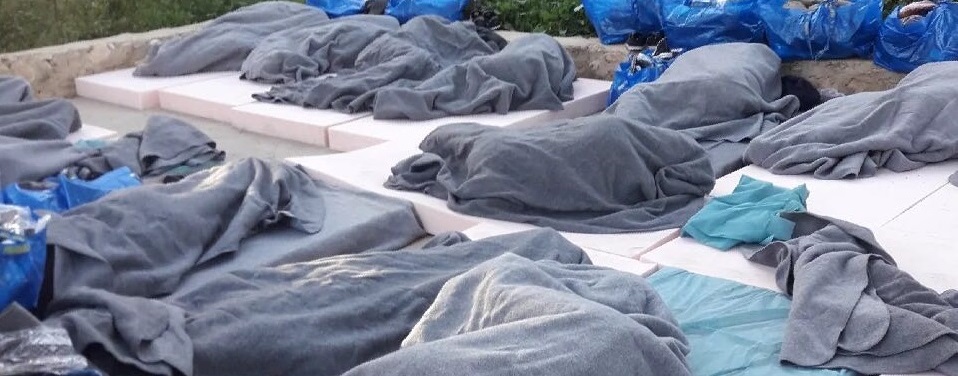Immigrants’s rights and detention: the sad end in the khlaifia’s case
On 2 December, the Committee of Ministers of the Council of Europe officially closed the supervisory procedure for the implementation of measures ordered in the Khlaifia v. Italy judgment. of the European Court of Human Rights. ASGI, A Buon Diritto and CILD consider this decision disrespectful of the thousands of people who have passed through the hotspots since 2011 having had their rights violated and invite civil society not to lower their guard.
On 15 December 2016, the Grand Chamber of the European Court of Human Rights, in Khlaifia v. Italy, held that Italy violated Article 5(1), (2) and (4) of the European Convention on Human Rights (ECHR), in detaining without legal basis and guarantees three Tunisian nationals in 2011 first at the Contrada Imbriacola Rescue and First Reception Centre (CSPA) (now a hotspot) in Lampedusa, and then on board the vessels Vincent and Audacia. It also found that Italy violated Article 13 of the ECHR, with reference to Article 3 ECHR, due to the absence of a procedure to lodge complaints about conditions of detention, notwithstanding the possibility to appeal to a Justice of the Peace against decrees of refoulement (a remedy useful only to challenge the legitimacy of such a measure).
This is a sentence that is sadly still topical, if one considers that even today there is no provision for validation before a judge for detention in hotspots and that there are no specific judicial remedies – contrary to what is in place for those detained in prison – to challenge the living conditions in such centres. In order to understand the ongoing relevance of the Khlaifia v. Italy judgment, it is enough to cast our minds to the tragic death of Abdel, first detained in the Lampedusa hotspot without sufficient legal information available to him, without the possibility of applying for international protection, and in a condition of severe isolation, and then transferred onto a “quarantine” ship until finally being detained in a CPR, without interruption. This time this treatment of a human being unfortunately led to more dramatic consequences than has usually occurred over the years around these kinds of procedures, that lead to unlawful removal from the territory and denial of the right to freedom of movement.
However this outcome is not unique. Another man, Wissem, died in a state of restraint, after more than a month of unlawful detention, just as the Justice of the Peace of Syracuse annulled the rejection decree issued against him in light of his failure to exercise his right to asylum at the border. Therefore, the total absence of rights and guarantees in the hotspots is still current.
Nevertheless, the Council of Europe, at its meeting on 2 December, surprisingly decided to close the procedure for the execution of the Khlaifia v. Italy judgment. It did however reiterate its arning to the Italian authorities to take into proper consideration concerns expressed by the civil society, stressing the importance of a continuous dialogue with the latter and with the National Guarantor of the Rights of Persons deprived of their Liberty, in order to take all necessary measures to ensure a rigorous and consistent application of the new legal framework.
This was a decision of a political nature (the Committee is an expression of the Governments of the States that make up the Council of Europe and is not a judicial body) without any legal basis. In fact, the Italian State continues not to provide rights and guarantees within the hotspot system, as continually evidenced by civil society during these proceedings. The Committee’s decision, five years after the decision of the European Court of Human Rights, raises serious concerns as it endorses the application of illegitimate practices instead of directing Public Administrations to respect the guarantees for the right to personal freedom and the fundamental rights of persons arriving on Italian territory within the ECHR. The type of management – or, rather, of contrast – of migration flows typical of the hotspot approach continues, therefore, to be characterised by the undue deprivation of personal freedom, functional to prevent access to the request for international protection, almost always based on the nationality of the migrants, and other rights, through an immediate and arbitrary selection between those who can apply for asylum and those who cannot, in order to achieve a rapid removal from the national territory for the latter.
What the Committee does not say, but seems to imply, is that, on this issue, everything is now basically permissible and there is no will to stop this process of criminalisation and repulsion towards foreigners. The proposals contained in the EU Commission’s European Pact on Migration and Asylum are a clear example of this. It is therefore necessary to continue to collect the testimonies of migrants, to denounce the conditions of detention in order to demand an overcoming of administrative detention and, in the meantime, to have guarantees for those detained in hotspots, in CPR and in other places of administrative detention at least equal to those provided for detention in prison.





